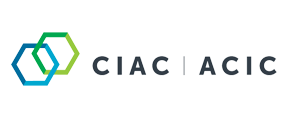Canada’s 43rd Parliament – challenging times ahead for Canada’s chemistry industry?
November 06, 2019
Canada’s 43rd Parliament has now been elected. Over the coming months new Ministerial appointments will be made and the re-elected Trudeau government will deliver its Speech from the Throne.
The new Parliament brings with it much uncertainty – how will the Liberals govern in this minority situation? Are the opposition parties in a position to extract demands to ensure their support on confidence motions? Will the conditions allow the government to be sufficiently nimble in what increasingly looks like softening economic prospects amidst diminishing global trade prospects? Perhaps most importantly, will the Liberals be seen to govern in the interests of all Canadians and tamp down the flashpoints of increasing regional tensions across the nation?
While we don’t have foresight on such questions, we can predict with considerable certainty that it will be a challenging time for Canada’s chemistry industry and CIAC. Below, we touch on our priority issues, challenges we can foresee and the positions CIAC will be taking into our engagements with representatives of all parties in this minority Parliament.
Chemicals Management – We anticipate the government will quickly move to introduce amendments to CEPA 99 in response to the legislative review concluded in the last Parliament. As a leading stakeholder in the CEPA process, CIAC worked with other industries, non-governmental stakeholders, the government and the Minister of Environment and Climate Change’s office to ensure the Minister’s response to the legislative review would deliver continual improvement, while maintaining the overall risk-based approach embedded in CEPA and the Chemicals Management Plan. CIAC will need to continue to advocate for such outcomes as the legislation is amended.
Plastics – Each of the Liberal, NDP and Green parties placed an emphasis on banning so-called ’single use plastics’ during the election campaign. CIAC will continue to be an active participant in the Canadian Council of Ministers of the Environment Canada-Wide Strategy on Zero Plastic Waste process and will continue to advocate strongly for actions, such as Extended Producer Responsibility, that will support the industry’s transition to a circular economy. CIAC will advocate for the government to introduce new legislation and not use CEPA and the Schedule 1 List of Toxic Substances as the legislative means for enabling federal actions. CIAC will also call on the government to fund technology development and deployment and modern infrastructure to support the circular economy transition.
Climate Change – Similarly, each of the above parties campaigned on a message of ‘accelerating climate action’. While supporting carbon pricing, CIAC will continue to advocate for approaches that maintain the competitiveness of Canada’s chemistry industry and that recognize that due to low-carbon feedstocks and electricity supplies, Canada’s industry produces some of the lowest carbon chemistries on the planet. As the federal government looks to recognize the global climate benefits of increased LNG shipments from Canada, we will be urging they consider the same for our chemistries.
Transportation – In response to another period of poor rail service performance in Winter 2019, the Canadian Transportation Agency acted with the new powers granted to it under Bill C-49. CIAC will be keeping a close watch on rail service performance in Winter 2020 and will work with stakeholders should further measures be required. CIAC will also be focused on its important Transportation Community Awareness Emergency Response (TRANSCAER®) program and its work with other stakeholders to build the capacities of first responders across Canada.
Investment Competitiveness – At times, the business and industry sectors acted as the punching bag for all parties during the election campaign. One-sided calls to ‘end corporate welfare’ were rallying cries for each of the party leaders. Nevertheless, provincial and federal governments heard and were responsive to CIAC’s message of chemistry investment opportunity over the past four years. At present, more than $12 billion in new chemistry investments are now underway, the vast majority of that in Alberta. Significant opportunity remains, however, and the new government and new Ministers will need to be fully informed about the opportunities and benefits for chemistry investments in Canada. Special consideration will be required to bring attention to the need for capital reinvestment in the chemistry sector in South West Ontario to ensure this $22 billion per year industry can continue to provide employment, taxes and social benefits for generations to come.
At CIAC’s most recent Board meeting, mere days before the election campaign, Impact Public Affairs President Huw Williams reviewed CIAC’s priorities and provided the sobering message that regardless of the election outcomes, the above five issues will feature prominently in the next Parliament, and likely for several Parliaments thereafter. These are generational issues that are unlikely to go away any time soon. Mr. Williams went on to stress that the most important thing the industry can do is to engage broadly and across all parties with the newly elected parliamentarians to share the Good Chemistry and Responsible Care® message.
Based on CIAC experiences over the past four years, that has been a winning strategy and one we will double down on in this newly elected and highly complex 43rd Parliament.





